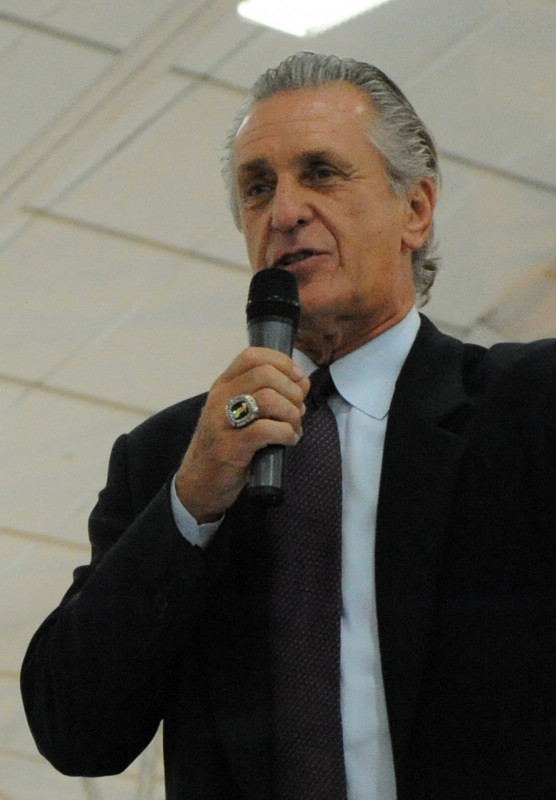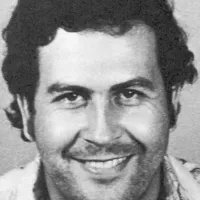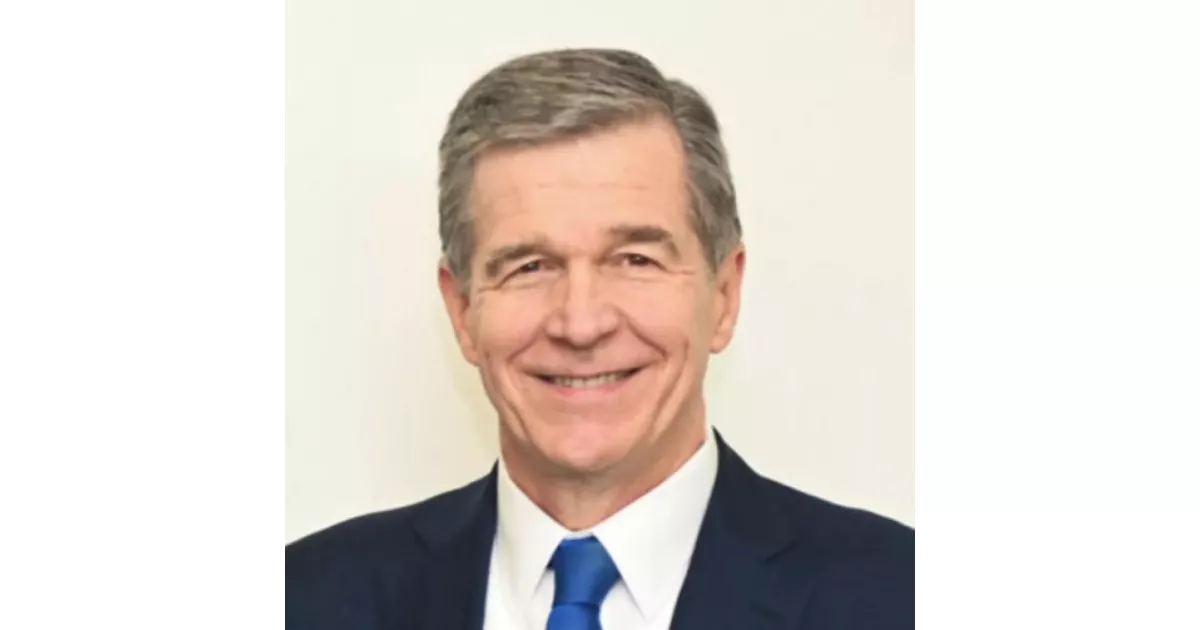Roy Asberry Cooper III served as the 75th governor of North Carolina from 2017 to 2025. A Democrat, his career in North Carolina politics spans several decades. Prior to his governorship, he served as the state's 50th Attorney General from 2001 to 2017. He also served in the North Carolina General Assembly from 1987 to 2001, giving him extensive experience in the legislative branch of the state government. Cooper's long tenure in North Carolina politics reflects a career dedicated to public service within the state.
June 13, 1957: Roy Cooper's Birth
On June 13, 1957, Roy Asberry Cooper III was born in Nashville, North Carolina.
November 19, 1985: Cooper Files for NC House
On November 19, 1985, Cooper filed to run for the North Carolina House of Representatives in the 72nd district.
January 1989: Cooper Becomes Chair of the House Judiciary Committee
In January 1989, Roy Cooper joined Republicans and other Democrats to unseat Speaker Liston B. Ramsey in favor of Josephus Mavretic, who then appointed Cooper as the chair of the House Judiciary Committee.
February 1991: Appointment to the North Carolina Senate
In February 1991, Roy Cooper was appointed to the North Carolina Senate after Jim Ezzell's death, representing the 10th district.
July 1997: Cooper Elected Majority Leader
In July 1997, Cooper was elected as the Majority Leader of the North Carolina Senate after Richard Conder's resignation.
January 2000: Cooper Campaigns for Attorney General
In January 2000, Roy Cooper filed to launch a campaign for North Carolina Attorney General.
January 6, 2001: Cooper Takes Office as Attorney General
On January 6, 2001, Roy Cooper officially took office as the Attorney General of North Carolina.
2004: Cooper ran unopposed in the Democratic primary
In 2004, Roy Cooper ran unopposed in the Democratic primary.
January 2007: Cooper's Office Assumes Responsibility for Duke Lacrosse Case
In January 2007, Roy Cooper's office took over the Duke lacrosse case after Durham District Attorney Mike Nifong asked to be recused.
April 11, 2007: Cooper Dismisses Duke Lacrosse Case, Declares Players 'Innocent'
On April 11, 2007, Roy Cooper dismissed the case against the Duke lacrosse team players, declaring them "innocent" after revelations of ethics violations by the District Attorney.
January 2008: Campus Safety Task Force Report Delivered
In January 2008, the Campus Safety Task Force delivered its report, which was created by Roy Cooper to analyze school shootings and make policy recommendations.
2008: Cooper ran unopposed in the Democratic primary
In 2008, Roy Cooper ran unopposed in the Democratic primary.
March 2016: North Carolina Passes House Bill 2
In March 2016, the North Carolina General Assembly passed the Public Facilities Privacy & Security Act, also known as "House Bill 2", which led to corporate boycotts. Roy Cooper denounced it and refused to defend it as attorney general.
January 1, 2017: Cooper Sworn in as Governor
On January 1, 2017, Roy Cooper was sworn in as the Governor of North Carolina in a small ceremony, after his public inauguration was canceled due to a snowstorm.
January 6, 2017: Cooper Requests Federal Approval for Medicaid Expansion
On January 6, 2017, after taking office, Governor Cooper requested federal approval for Medicaid coverage expansion in North Carolina.
March 22, 2017: House overrode Cooper's veto of a bill making judicial elections partisan
On March 22, 2017, the House overrode Roy Cooper's veto of a bill that would make elections to the North Carolina Superior Court and to the District Court partisan.
April 21, 2017: Cooper vetoed bills regarding court size and election boards
On April 21, 2017, Roy Cooper vetoed a bill to reduce the size of the North Carolina Court of Appeals and another bill that would create a new State Board of Elections split evenly between Republicans and Democrats.
May 9, 2017: Cooper Appointed to Opioid Addiction Commission
On May 9, 2017, President Donald Trump appointed Roy Cooper to a commission tasked with reducing opioid addiction.
June 7, 2017: Cooper Calls for Special Redistricting Session
On June 7, 2017, Roy Cooper called for a special redistricting session after the Supreme Court of the United States declared North Carolina's legislative maps unconstitutional, but the session was canceled.
July 2017: Cooper vetoed a bill authorizing nonprofit "game nights"
In July 2017, Roy Cooper vetoed a bill to authorize nonprofit organizations to operate "game nights", citing concerns about the potential for the video poker industry to exploit the opportunity.
July 26, 2017: Cooper Signs School Bus Camera Bill
On July 26, 2017, Roy Cooper signed a bill to mount cameras on school buses to deter drivers from illegally passing stopped buses.
August 31, 2017: Cooper Declares State of Emergency Due to Gas Supply
On August 31, 2017, Roy Cooper declared a state of emergency in North Carolina due to plummeting gas supply.
December 2018: Cooper vetoed a bill regarding primary elections and campaign finance
In December 2018, Roy Cooper vetoed a bill passed by the North Carolina General Assembly that would require new primary elections under certain conditions and included a provision making campaign finance investigations less public.
March 6, 2019: Cooper proposed a $25.2 billion budget
On March 6, 2019, Roy Cooper proposed a $25.2 billion budget that included salary increases for public school teachers and state workers, expansion of Medicaid, and a $3.9 billion bond to help fund school construction and local infrastructure projects.
May 2019: Cooper vetoed a bill punishing physicians and nurses regarding newborns that survive an abortion
In May 2019, Roy Cooper vetoed a bill that proposed punishments against physicians and nurses who do not resuscitate newborns that survive an abortion, stating that it was unnecessary interference between doctors and patients.
December 5, 2019: Cooper Announces Reelection Campaign
On December 5, 2019, Roy Cooper announced his candidacy for reelection as Governor of North Carolina.
February 11, 2020: Cooper announced the creation of a Novel Coronavirus Task Force
On February 11, 2020, Roy Cooper announced the creation of a Novel Coronavirus Task Force for North Carolina in response to the emerging COVID-19 pandemic.
March 2021: Cooper announced he would not run for U.S. Senate
In March 2021, Roy Cooper announced that he would not run for the U.S. Senate seat held by retiring Republican Richard Burr.
March 27, 2023: Cooper signed landmark legislation expanding Medicaid
On March 27, 2023, Roy Cooper signed into law landmark legislation expanding Medicaid after the Republican-controlled General Assembly passed the bill through both houses.
2023: Cooper discussed the pronunciation of his last name
In 2023, Roy Cooper clarified that his last name should ideally be pronounced /ˈkʊpər/, though he is fine with the more common pronunciation /ˈkuːpər/.
July 2024: Cooper withdrew his name from consideration as a running mate for Kamala Harris
In July 2024, after Kamala Harris announced her presidential campaign, Roy Cooper was considered as a possible running mate but withdrew his name from consideration on July 29, without giving a reason.
December 31, 2024: Cooper commuted the sentences of 15 inmates on North Carolina's death row.
On December 31, 2024, a day before leaving office, Roy Cooper commuted the sentences of 15 inmates on North Carolina's death row.
Mentioned in this timeline

Donald John Trump is an American politician media personality and...

Coronaviruses are a family of RNA viruses affecting mammals and...
Virginia a state in the Southeastern and Mid-Atlantic US lies...
Medicaid is a joint federal and state government program providing...
North Carolina is a Southeastern U S state the th-largest...

Duke Energy Corporation based in Charlotte North Carolina is a...
Trending
44 minutes ago Zimbabwe launches HIV prevention drug Lenacapavir; Kenya to roll out HIV shots.

45 minutes ago Tami Roman Shines in 'Double Double Trouble' Premiere on Lifetime Channel

45 minutes ago Pat Riley Honored with Statue Outside Lakers' Arena, Cementing Legacy.
45 minutes ago Sheldon Creed Secures First Career Win at EchoPark Speedway in O'Reilly Race.

45 minutes ago Pablo Escobar's hippos dung art, narco recruitment in Mexico on the rise.

2 hours ago Cavaliers defeat Hornets 118-113: Game recap and key takeaways from the match.
Popular

Jesse Jackson is an American civil rights activist politician and...

Barack Obama the th U S President - was the...

Bernie Sanders is a prominent American politician currently serving as...

Michael Joseph Jackson the King of Pop was a highly...
WWE Raw a professional wrestling television program by WWE airs...
The Winter Olympic Games a major international multi-sport event held...
